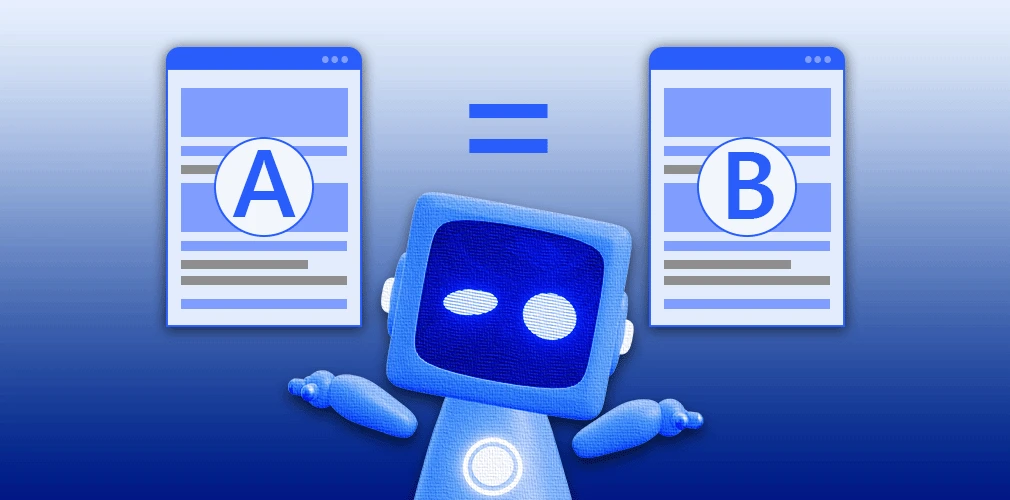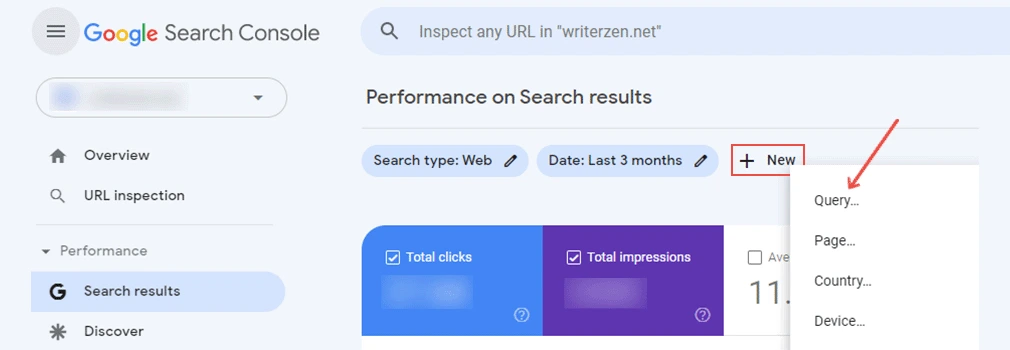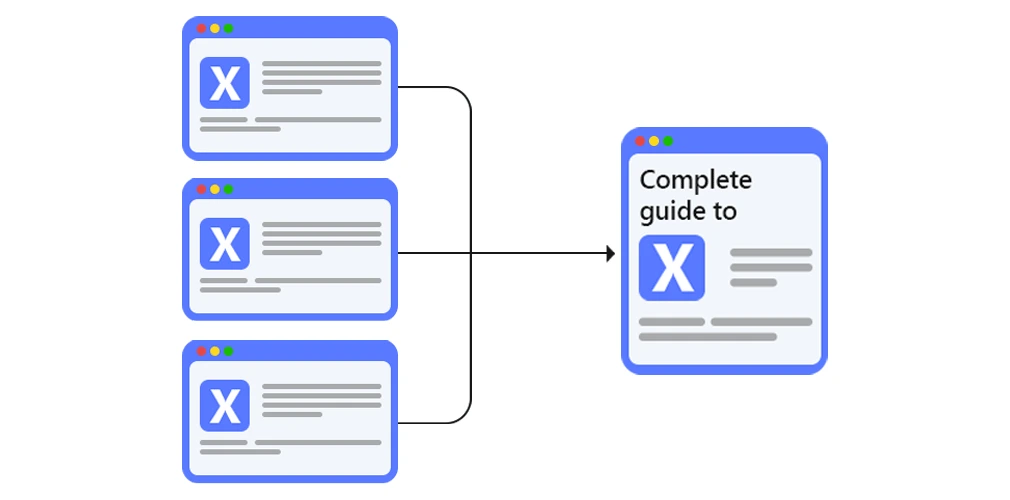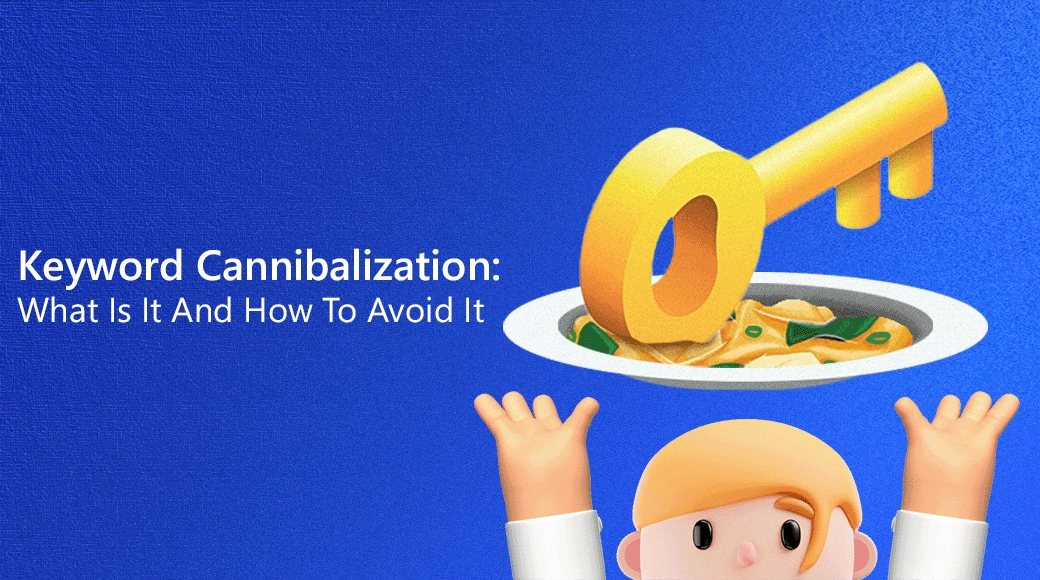Optimizing your articles with the same key phrases and terms makes your website suffer in ranking on the SERP.
It is also known as keyword cannibalization, which occurs when your keywords are repeated on multiple web pages, subdomains, blog posts, and other types of content.
It is also called “semantic flux,” when two websites owned by the same company simultaneously appear in search results.
Continue reading to learn how to avoid keyword cannibalization in your content marketing efforts.
Keyword Cannibalization: An Introduction
Having multiple pages with the same topics or terms confuses the search engine crawlers and hurts the webpage’s organic performance.
For example, by optimizing your articles for the same keyword, “shoe polish,” you might want to create several pieces to cover the same topic.
However, the search engine only registers the term “shoe polish” and assumes that all your web pages are about the same topic, thus, decreasing the credibility and authority of your website domain.
Besides creating quality content, it is important to include various keywords in your website content to keep things fresh and not fall into the trap of keyword cannibalization.
Cannibalization is not an alarming issue unless you choose to target your website content based on one specific term for all pages.
You end up dividing your click-through rates, URLs, website content, and target audience conversions between multiple pages.
If you've noticed that some of your pages contain similar keywords, you might be committing keyword cannibalization. But the problem is even worse when all your articles are optimized for the same key phrase.
In this case, you will see three or more results from the same domain, which can get very frustrating. Instead of writing about “shoe polish,” bring a variety of other related keywords like “black shoe polish for boots,” “shoe polish for leather shoes,” “school shoe polish,” etc.
The Disadvantages of Keyword Cannibalization for Website SEO
Keyword cannibalization brings in a host of side effects that hurt your website's ranking.
You might lose website traffic, the queries get redirected to less authoritative pages, the SERP rankings fluctuate, and the sales and conversion cease.
Specifically, these are several reasons why you should avoid keyword cannibalization:
Important Pages are Skipped
In the case of keyword cannibalization, the SERP throws up a list of results based on your website but fails to convince readers due to the unavailability of answers.
Moreover, web crawlers may skip the essential information and show unimportant pages on the SERP.

Page Authority is Decreased
The use of the same keyword leads to pages now turning into competitors. They end up not ranking on the SERP for the right reasons, and the backlinks get split between multiple pages.
Several pages targeting the same key phrase also signal the search engine into believing that the website content is poor, and it is a desperate attempt by the website to rank high.
Crawl Budget is Wasted
Search engine algorithms are able to index your website information when you provide a proper sitemap with well-distributed high potential keywords.
However, websites that use the exact phrases for all the web pages confuse the crawlers and end up indexing pages that are useless and out of context.
Poor Conversion Rate
It leads to a poor conversion rate as the search queries get diverted to the wrong pages on your website.
Instead of leading them to the authoritative product or service page (based on their search intent), the search engine directs the audience to a less informative or low authority page, causing a wrong impression, high bounce rates, and poor conversions.
How to Find Cannibalization Issues
Even when you carefully research keywords for your websites, cannibalization can still happen.
Identifying the problem areas and fixing them early makes dealing with the issue much more manageable.
You can either use a keyword mapping tool or a spreadsheet to store all the information related to keywords used in all your web pages and their topics. Enlist the URLs with the keywords to look for duplicate entries.
Enter the following elements to check if keyword duplication is there:
-
Keyword and rank
-
Word count
-
The webpage URL
-
The organic traffic
-
Bounce rate
-
Conversions
Once you spot those common keywords, treat each webpage individually to fix keyword cannibalization.
One common symptom is that your ranking URLs switch in and out of the SERPs. Google can't tell which page deserves to be ranked for a given keyword. To avoid this, set up a blog calendar and plan your topics ahead of time.
If your site has several pages with the same intent, you may want to analyze which page performs best by considering historical traffic and inbound links.
A 301 redirect is the easiest solution. If you are unsure whether 301 redirects are the best solution, try a different option to avoid cannibalization.
If you are unsure what pages cannibalize your site, you can check Google Search Console. Conduct a search query relevant to your industry. You can also perform a keyword cannibalization search to see which pages rank for the exact keywords.

How to Solve Keyword Cannibalization Issues
One of the best ways to avoid product cannibalization is to track how new products affect existing sales and how consumers shift towards them.
These tips will help you calculate your cannibalization rate:
-
Use market research tools: You can't completely predict the impact of introducing new products, but thorough research helps protect your current sales and explore new opportunities. Product cannibalization can eat into your market share and lower revenues.
-
Conduct a website audit: This is to compile helpful insight about each page and see if there are any duplicates among the pages. Afterward, you can decide which pages to remove and which to keep.

-
Look for new keywords: For pages focusing on the same keyphrase, you should find more keywords that cover various search intent-based. Adding long tail keywords and alternate phrases to your content can also help the pages avoid keyword cannibalization issues.
-
Change your site's optimization settings: If two or more pages rank for the same keyword, the best solution is to delete the overlapping content or merge them. Keep the most relevant and earns the best position in the SERP.
-
Focus on your website’s internal linking: This will help Google understand which article or page is valuable. Create an internal link structure by linking less important posts to significant ones.
-
Use a position tracking tool: This tool helps determine which URL is most relevant to the keyword. It considers the traffic estimate and search volume for each keyword phrase. You can use this tool to monitor fluctuations and determine the time when keyword cannibalization may have begun.
Final thoughts
Keyword cannibalization occurs when the focused keywords on two or more pages are the same, and this happens more frequently among websites, even big brands.
This issue contributes to low conversion rates, decreased click-through rates, and diminished authority. Cleaning up your website should be a part of your overall SEO content strategy to avoid cannibalization happens.















